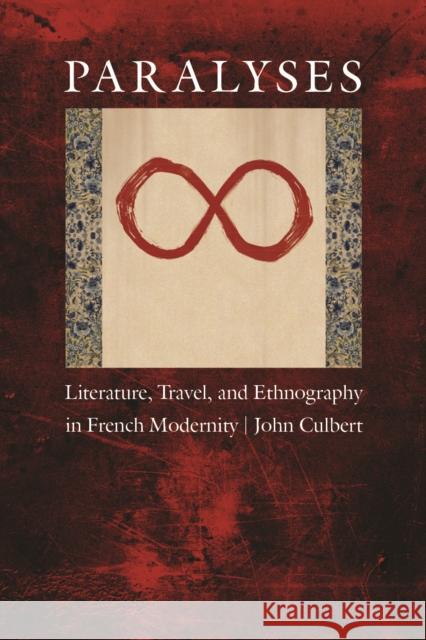Paralyses: Literature, Travel, and Ethnography in French Modernity » książka
Paralyses: Literature, Travel, and Ethnography in French Modernity
ISBN-13: 9780803229914 / Angielski / Twarda / 2011 / 456 str.
Modernity has long been equated with motion, travel, and change, from Marx s critical diagnoses of economic instability to the Futurists glorification of speed. Likewise, metaphors of travel serve widely in discussions of empire, cultural contact, translation, and globalization, from Deleuze s nomadology to James Clifford s traveling cultures. John Culbert, in contrast, argues that the key texts of modernity and postmodernity may be approached through figures and narratives of paralysis: motionis no more defining of modern travel than fixations, resistance, and impasse; concepts and figures of travel, he posits, must be rethought in this more static light.Focusing on the French and Francophone context, in which paralyzed travel is a persistent motif, Culbert also offers new insights into French critical theory and its often paradoxical figures of mobility, from Blanchot s pas au-dela and Barthes s derive to Derrida s aporias and Glissant s diversions. Here we see that paralysis is not merely the failure of transport but rather the condition in which travel, by coming to a crisis, calls into question both mobility and stasis in the language of desire and the order of knowledge. Paralyses provides a close analysis of the rhetoric of empire and the economy of tourism precisely at their points of breakdown, which in turn enables a deconstruction of master narratives of exploration, conquest, and exoticism. A reassessment of key authors of French modernity from Nerval and Gautier to Fromentin, Paulhan, Beckett, Leiris, and Boudjedra Paralyses also constitutes a new theoretical intervention in debates on travel, translation, ethics, and postcoloniality."











